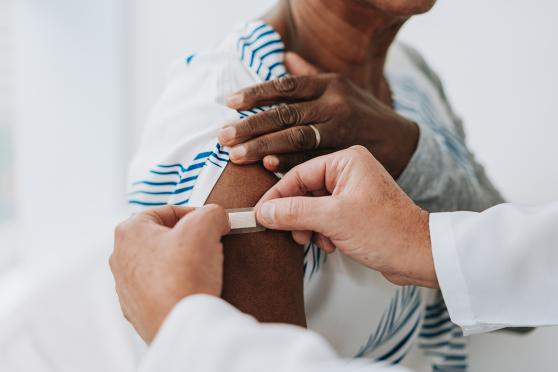Use these smart strategies to avoid COPD flare-ups
If you have trouble breathing, everyday activities can be a challenge. But these healthy habits, from eating right to exercising, can help you avoid flare-ups and feel your best.

Living with chronic obstructive pulmonary disease (COPD) means living with a condition that doesn’t go away. But you can keep it from getting worse. There are things you can do to breathe well and stay healthy, says William Goodman, M.D., M.P.H., a pulmonary care specialist at Dartmouth-Hitchcock Medical Center.
Try these strategies to take charge of your health:
Strategy #1: Quit smoking and avoid smoke. If you smoke, quit as soon as you can. This is the best thing you can do if you have COPD. If you don’t smoke, avoid secondhand smoke.
Strategy #2: Know and avoid triggers. Besides smoke, other things in the air can cause your COPD to flare up. Dust mites are a common trigger. Wash sheets in hot water to get rid of mites. Remove any perfumes, soaps, and cleaners with strong smells. Know your outdoor triggers, too, such as extreme temperatures and exposure to trees, grass, weeds, pollen, and mold spores. Opt to stay indoors when allergen counts and the Air Quality Index are high, says John Walsh of the COPD Foundation.
Strategy #3: Eat to stay strong. Our bodies use calories for fuel. “A person with COPD needs between 430 and 720 calories per day just to do the work of breathing,” Walsh says. But be sure to get your calories from nutritious, healthy sources: fruits and vegetables, whole grains, lean proteins, low-fat dairy, and healthy fats such as olive oil.
Strategy #4: Be active. “Take a walk, even if it’s just around the house,” says Dr. Goodman. You might think that being short of breath is a good reason not to be active. But that leads to being out of shape, which makes it harder to breathe. Ask your doctor what activities are best for you.
Strategy #5: Protect yourself from germs. Colds and other illnesses are never fun, but they can be even harder on people with breathing problems. Wash your hands regularly and avoid big crowds when an illness is going around. Get a flu shot and ask your doctor if you need a pneumonia vaccine.
Strategy #6: Acknowledge and move forward. Having COPD can be a source of many emotions: sadness, guilt, anxiety, and fear. “Try to understand that you can’t control everything in your life,” Walsh says. If you’re having a hard time coping, talk to your family, friends, or doctor.
What to do if you have an attack
Practice pursed-lip breathing. This simple breathing exercise helps slow down your breathing and improve breathing patterns. Start by breathing in slowly through your nose for two counts, keeping your mouth closed. Then pucker your lips as if you’re about to whistle and breathe out slowly for four counts.


